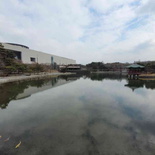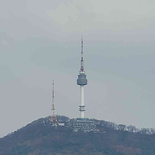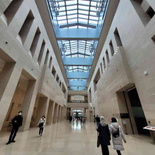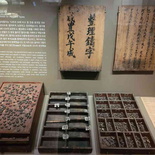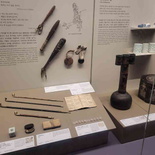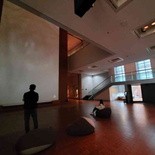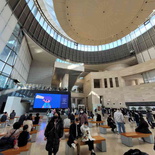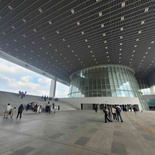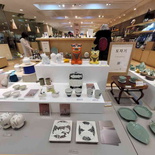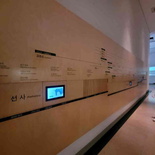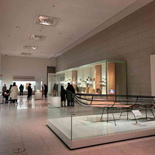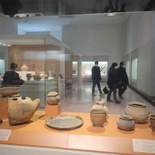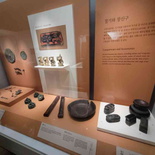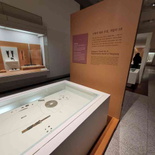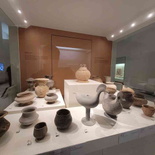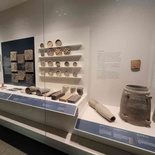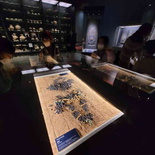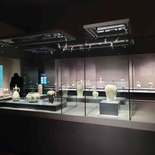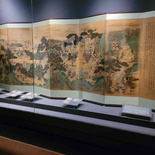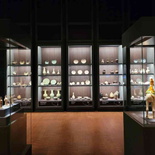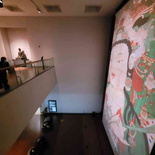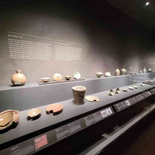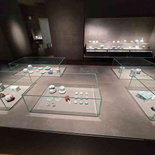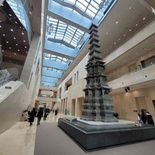The National Museum of Korea in Seoul, South Korea, is a national museum home to some of the most iconic Korean cultural and historical landmarks in the world. The museum takes you on an exploratory journey through the anthropology of the Korean dynasty. This is told through a showcase of ancient artifacts and exhibits that span over 5,000 years of history. Let’s take an explore of the rich Korean History at the National Museum of Korea.
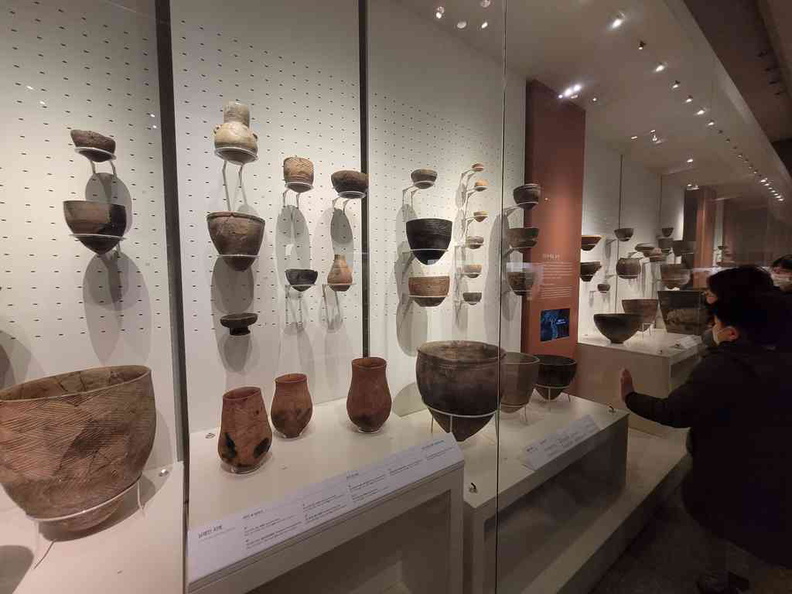
Museum Architectural and history
Built in 2005, the National Museum of Korea is a relative contemporary by museum standards. It features a modern exterior and interior design. The museum covers an area of 137,201 square meters with galleries spanning three floors across two wings. The ground and second floors house the permanent galleries, while the top floor houses a miscellaneous gallery.
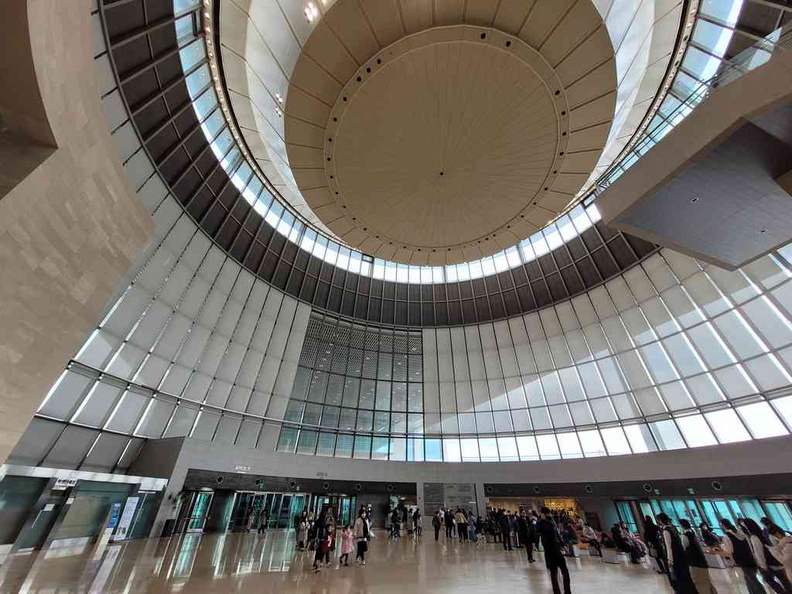
Additionally, the museum building has a modern design flair to it. You might be mistaken it for a contemporary arts museum as opposed to a national museum. Also, the exterior of the museum is home to a park sprawling and tranquil park with a lake. You can find koi fishes in the pond and birds nesting around this urban park grounds. This scene of nature sits in fronts the facade of the museum.
On my visit, the park is a popular place for seniors and families. A refuge from the buzz of the Seoul urban jungle. The subway station is linked to this park via an underground walkway which pops you up to the park. The museum main entrance is a 50 meter walk past this park.
The National Museum of Korea is an impressive structure that is modern in design yet still retains elements of traditional Korean architecture. Also, the museum building was designed by Chang Ucchin, a professor of architecture from Seoul National University. Architecturally, the museum is spread over three floors, and each floor features different exhibitions that cover various periods of Korean history.
Vast lobby courtyard
Upon entering the museum, you be greeted with a vast three-floored tall courtyard lit by a roof skylight. The courtyard leads to the public gallery halls and is flanked by a museum café on the second floor and a museum gift shop on the ground floor. Additionally, the museum features amenities such as clean toilets, lots of seating areas, and wide-open halls, making it accessible for seniors or mobility-limited persons.
Moreover, the museum features temporary galleries that display special exhibitions that showcase specific artifacts, themes, or events in Korean history. The exhibits include paintings, sculptures, ceramics, and artifacts, among others. Also, the galleries are supplemented with audio-visual elements that provide detailed explanations of the exhibits.
Permanent and Temporary Galleries
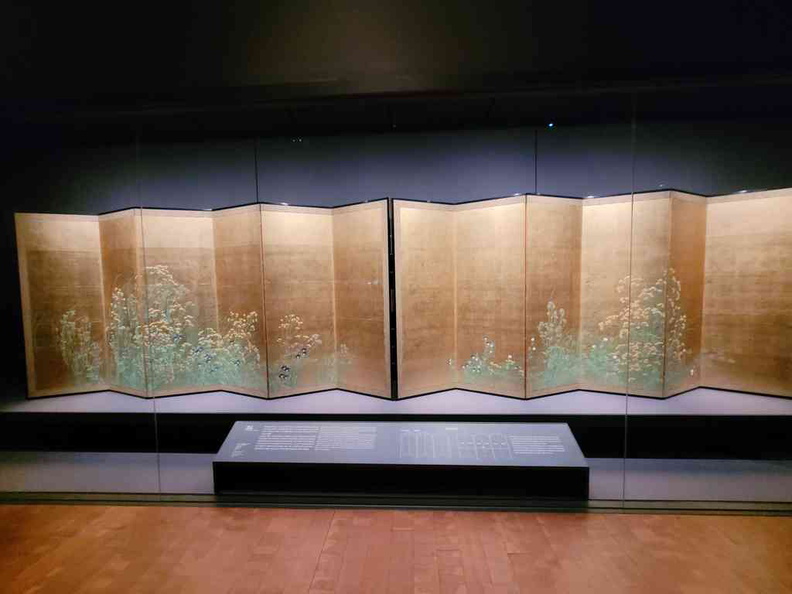
Furthermore, starting off, the museum’s first floor features galleries covering Korean Prehistory and Ancient History. Here, you can view items on display from the Korean Paleolithic era to the Goryeo dynasty. It showcases a curated collection behind glass of artifacts that were excavated from archaeological sites in the Korean Peninsula.
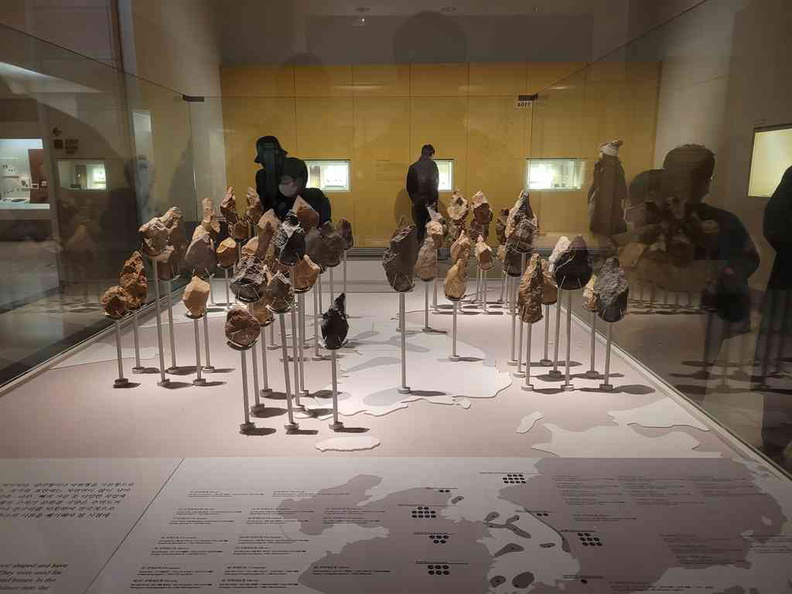
The galleries leads on you through the different periods of Korean history, starting from the Stone, Bronze, and Iron ages, up to the Joseon era, and concluding with the founding of the new Korean dynasty.
Moving on to the second floor, the museum presents the Medieval and Early Modern History Gallery, which covers the Joseon dynasty. This gallery exhibits the cultural and artistic achievements of the Joseon dynasty, including its scientific and technological advancements. The exhibit features various artifacts, such as the Uigwe royal protocols, the Annals of the Joseon Dynasty, and a number of paintings and calligraphies by the renowned artist, Jeong Seon.
A minor hall and gallery on the museum’s second floor is dedicated to donated items from institution and personal private collections.
Significant Artifacts and Exhibits
The National Museum of Korea is home to some of the most important and significant artifacts in Korean history. One prominent artifact is the Gilt-bronze Incense Burner of Baekje, a National Treasure of Korea. This artifact is from the Baekje dynasty and is famous for its intricate designs and Buddhist imagery. There is also a good mix of ancient and modern takes of portraying history, such as a vast floor to ceiling animation of iconic scenes in Korean history.
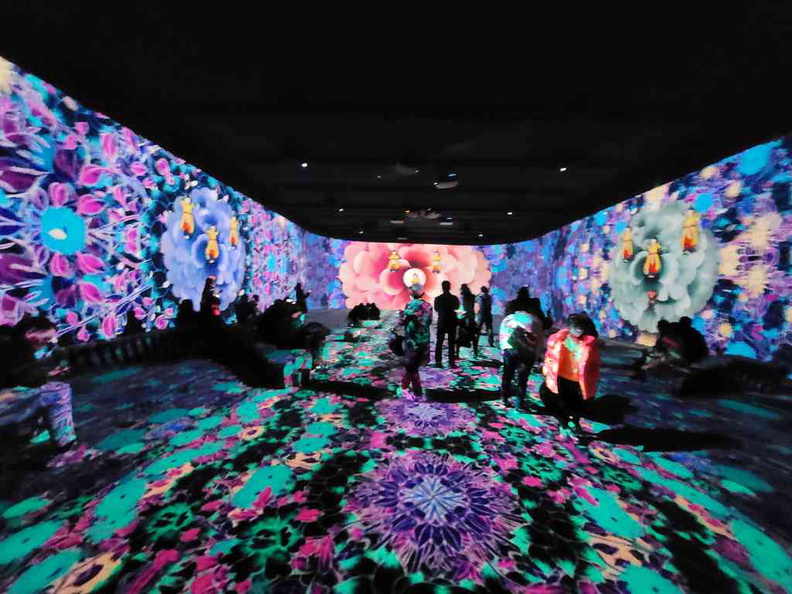
Also, the museum also houses a vast collection of pottery, including the Celadon of Goryeo, which is known for its blue-green glaze. There is also a very cool audio-visual room with a floor to ceiling looping animation of animated scenes of Korean history.
Other notable items on display include the Silla Golden Crown and the Cheonmachong Tomb Mural, which depicts scenes from Silla life. Also, the museum’s galleries also include an elaborate display of sedan chairs, furniture, and clothing used by the royalty and associates during the Joseon era, providing a glimpse into the way of life in the Korean palaces.

Another exhibit to catch here is the Ten-story Stone Pagoda of Gyeongcheonsa Temple Site. The pagoda is a National Treasure of Korea known for its intricate designs and dates back to the Goryeo dynasty. Also, it is over 700 years old and stands at over 14 meters tall in the museum courtyard.
War history
Moving on, the museum’s third floor is dedicated to the Korean Modern and Contemporary History Gallery. Additionally, the items here comprises of range of everyday artifacts, including personal belongings, documents, photographs. These objects dates from the late 19th century to the present day, illustrating the day to day country’s progress.
Moreover, the items tell the story of Korea’s modernization and its struggles during the Japanese colonial period. Also, this is evidenced by as well as the Korean War and the country’s subsequent economic and social developments.
Additionally, in relation to war history, the Korean DMZ and War Memorial of Korea in Seoul, the National Museum of Korea features a small section of the Korean War Gallery dedicated to the DMZ. The galleries provide insights into the conflict and its impact on Korean society. Also, on display here, are photographs, maps, and documents related to the war and its aftermath. You can visit the Korean war memorial if you wish to read up more of the modern Korean war.
Buddhist gallery
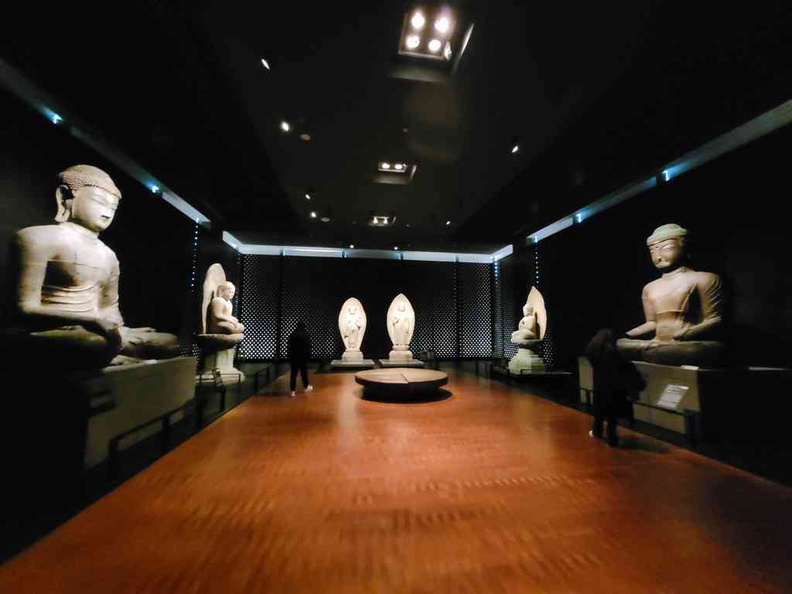
Furthermore, the museum houses a vast Buddhist artefact gallery. It features sculptures, scriptures, and trinkets of Korea’s most predominant religion. Also, the gallery here is a dim and tranquil one, reflecting much of the teaching and nirvana. Also, this Buddhist section has a two-floor projection screen showcasing highlights of the religion and artefacts.
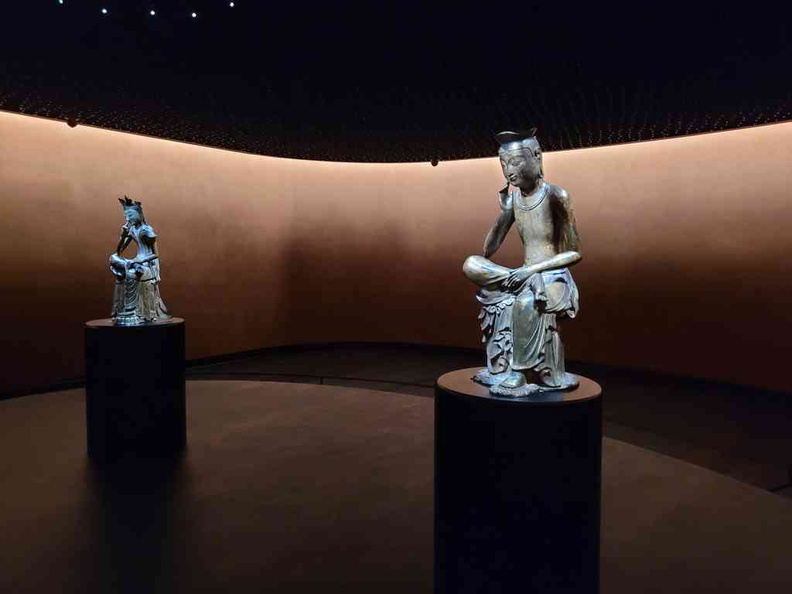
Related Seoul attractions
Furthermore, the National Museum of Korea location in central Seoul makes it easily accessible for you to explore Seoul’s other city attractions. Geographically, it is situated near other major Seoul landmarks and points of interests. Hence, making for an excellent spot to add to your Seoul itinerary, where you can visit and learn more about Korean history, culture, and heritage.
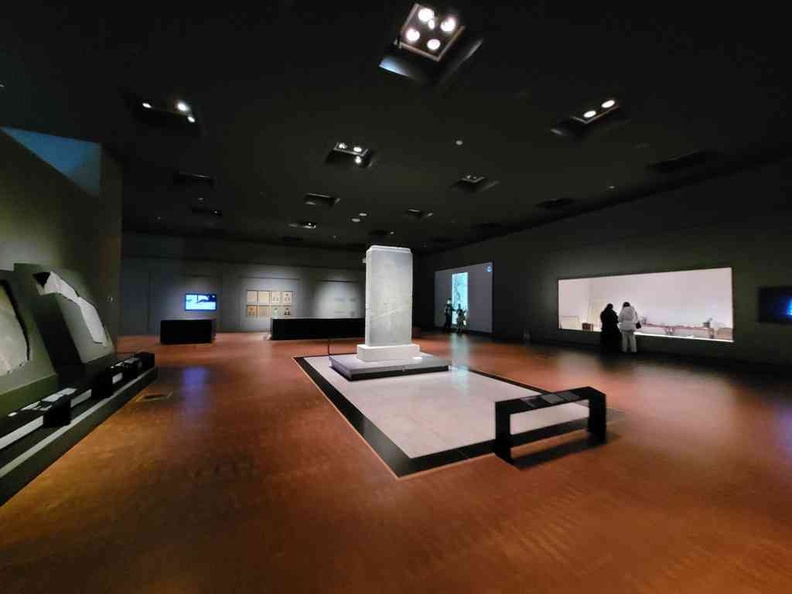
Examples includes other iconic cultural landmarks, including Gyeongbokgung and Changdeokgung palaces, the War Memorial of Korea and up the scenic N Seoul Tower. Also, notably, the palaces were former residences of the Korean kings and queens, before the North South separation.
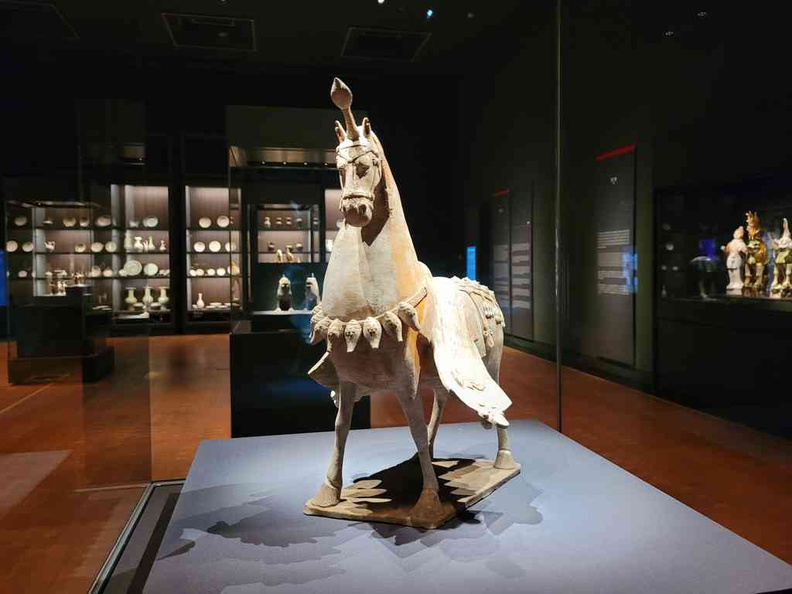
Moreover, these attractions supplement the exhibits you see here. They are complementary examples of traditional Korean history, culture and architecture. Also, the curation of exhibits is also a testament to the country’s rich cultural heritage.
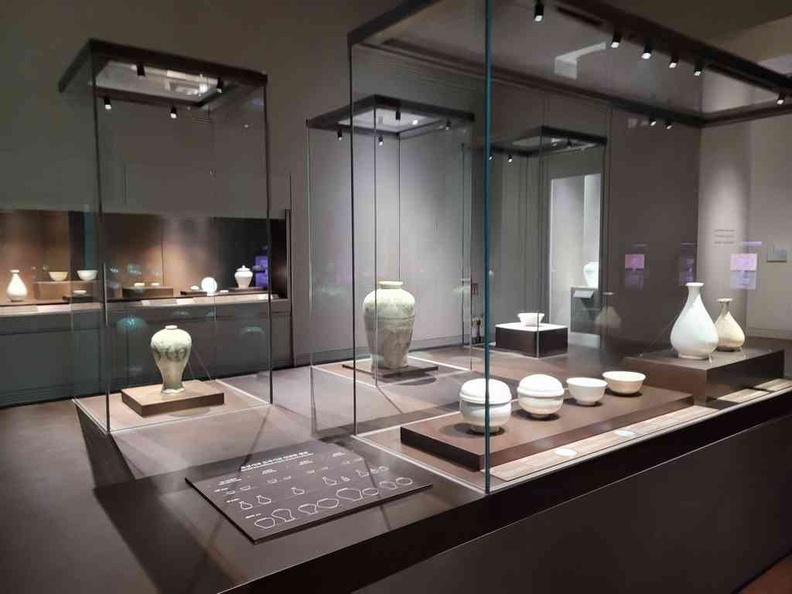
Wrapping up
Wrapping up, apart from the permanent galleries, in an adjacent building complex, the museum also hosts temporary exhibitions that showcase various aspects of Korean culture and history. Examples includes Korean traditional music and dance, contemporary art, and Korean fashion. Also, the museum also has a gift shop which sits between the permanent and special exhibition buildings. Here, you can purchase souvenirs, books, and other items related to Korean culture and history.
In conclusion, you are good for the National Museum of Korea for about 2-3 hours, for a half day visit. It is one to visit, and a recommendation for those interested in Korean history and culture. The National Museum of Korea and the artefacts within represents the pride and heritage of the Korean people. The museum is open from Tuesday to Sunday, from 10:00 am to 6:00 pm, with last admission at 5:00 pm. The museum is closed on Mondays and some public holidays. Admission is free, except for special exhibitions.

